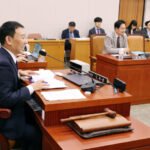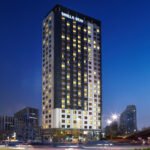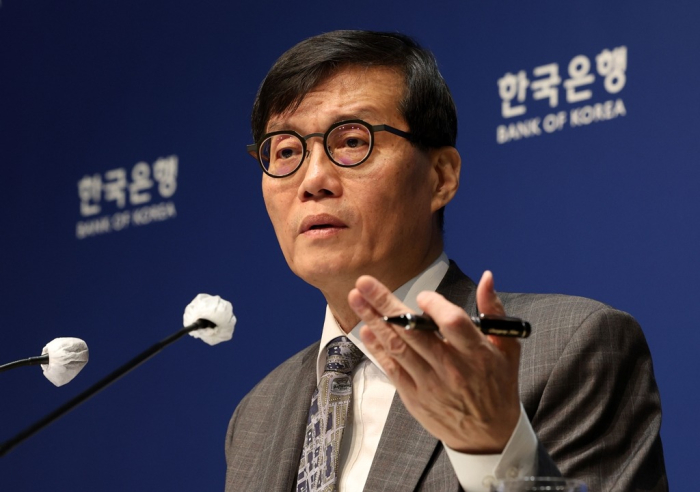
South Korea’s central bank on Tuesday cut interest rates while sharply reducing its economic growth forecast as the lingering political turmoil after December’s martial law and looming tariffs from US President Donald Trump are expected to derail Asia’s fourth-largest economy.
The Bank of Korea (BOK) lowered its policy interest rate by a quarter percentage point to 2.75%, the lowest since August 2022, in a unanimous decision as widely expected.
The central bank also slashed its economic growth forecast for this year to 1.5% from the previous 1.9% published in November. The latest forecast is also lower than the monetary authority’s prediction announced last month that the economy was likely to grow 1.6-1.7% this year. The economy expanded 2.0% last year.
“Trends in the domestic demand recovery and in export growth are forecast to be lower than previously expected due to deteriorating economic sentiment and due to US tariff policies,” the BOK said in a statement.
“It is judged that inflation stabilization has continued, while domestic economic growth is projected to remain low for some time.”
South Korean government bond yields fell across the board after the remarks.
The highly liquid South Korean government’s three-year bond yield dipped 1.4 basis points to 2.596%, while the five-year debt yield lost 1.9 bps to 2.698%, according to the Korea Financial Investment Association. The 10-year yield skidded 2.8 bps to 2.797%.
FURTHER CUTS BUT NOT IMMINENT
BOK Governor Rhee Chang-yong said the central bank’s policymakers share the financial market’s views that the central bank is likely to lower the benchmark interest rate two or three times this year, including the latest cut.
Rhee said the BOK may not rush into further easing, however.
“Four out of six monetary policy board members said the policy rate is likely to remain at 2.75% in the next three months as they expressed concerns over rapidly exhausting the room for further rate cuts amid high uncertainties in the domestic and external policy environment,” Rhee told reporters after the rate cut.
“The rest two said it is necessary to leave the door open to lower the rate below 2.75% in the next three months.”
The policy consists of seven members including Rhee, who chairs the committee.
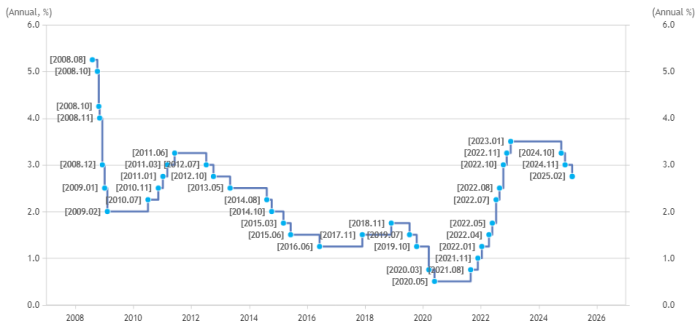
Analysts focused more on the possibilities of further cuts than the timing of easing.
“The economy is facing more downside than upside risks as the revised forecast reflects expectations of two or three more rate cuts,” said Baek Yoon-min, a fixed-income analyst at Kyobo Securities Co. in a note.
“The monetary policy path supports further rate cuts, given inflation and growth,” Baek said, adding that the central bank is expected to lower the policy borrowing costs by 25 bps each in the second and third quarters to 2.25%.
The BOK lowered its core inflation forecast for 2025 to 1.8% from the previous 1.9% while maintaining its headline inflation prediction at 1.9%. That compared with the central bank’s long-term target of 2%.
SLOWER EXPORTS GROWTH
Rhee said the economy is facing more risks from Trump’s protectionism.
“The latest growth forecast reflected the growing uncertainties over the US tariff policies since US President Donald Trump took office, while domestic developments such as martial law were a significant factor (to lower the growth prediction) in January,” Rhee said.
South Korea’s Constitutional Court is expected to decide whether to remove President Yoon Suk Yeol from office permanently or reinstate him next month. Yoon was impeached by lawmakers over his stunning martial law decree on Dec. 3.
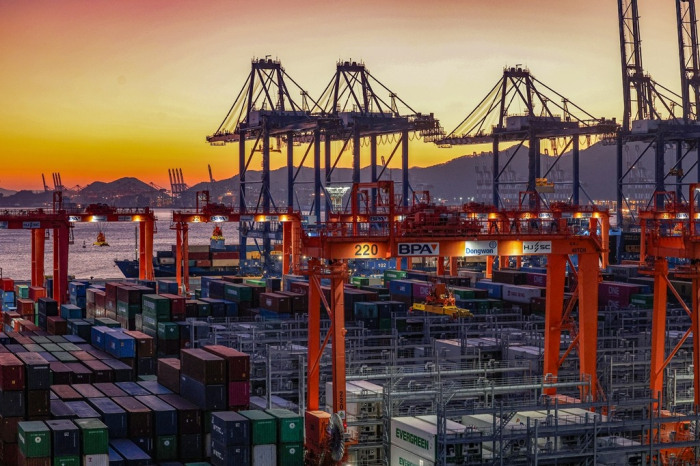
The BOK slashed its forecast for the trade-dependent economy’s 2025 goods export growth to 0.9% from the previous 1.5%.
Trump said on Monday his tariffs on Canada and Mexico are starting next month while stressing more broadly that his intended “reciprocal” tariffs were on schedule to begin as soon as April.
Earlier this month, Trump announced moves to impose 25% tariffs on all steel and aluminum imports coming into the US “without exceptions or exemptions” while planning to charge similar duties on semiconductors, automobiles and others.
South Korea is home to the world’s two largest memory chipmakers – Samsung Electronics Co. ad SK Hynix Inc. – as well as the world’s No. 3 carmaker — Hyundai Motor Co. and Kia Corp. together.
The BOK warned South Korea’s economic growth could slow further to 1.4% his year if the US tariff policy sparks a global trade war.
“In a pessimistic scenario of reciprocal retaliatory actions between the US and other countries, global trade would contract sharply and uncertainty surrounding trade policy would increase, significantly slowing domestic exports and investment,” BOK said in a separate report.
The central bank cut facility investment and private consumption growth forecasts for this year to 2.6% and 1.4%, respectively, from the previous 3% and 2%.
By Jin-gyu Kang and Dong-Wook Jwa
josep@hankyung.com
Jongwoo Cheon edited this article.


